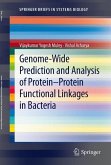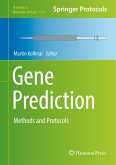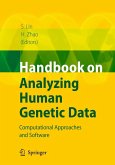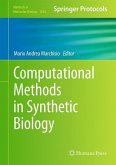With the detailed genomic information that is now becoming available, we have a plethora of data that allows researchers to address questions in a variety of areas. Genome-wide association studies (GWAS) have become a vital approach to identify candidate regions associated with complex diseases in human medicine, production traits in agriculture, and variation in wild populations. Genomic prediction goes a step further, attempting to predict phenotypic variation in these traits from genomic information. Genome-Wide Association Studies and Genomic Prediction pulls together expert contributions to address this important area of study. The volume begins with a section covering the phenotypes of interest as well as design issues for GWAS, then moves on to discuss efficient computational methods to store and handle large datasets, quality control measures, phasing, haplotype inference, and imputation. Later chapters deal with statistical approaches to data analysis where the experimental objective is either to confirm the biology by identifying genomic regions associated to a trait or to use the data to make genomic predictions about a future phenotypic outcome (e.g. predict onset of disease). As part of the Methods in Molecular Biology series, chapters provide helpful, real-world implementation advice.
From the reviews:
"A detailed review that will help both genomics newbies and experts to have a better picture of what their genome sequences can offer them today. ... People working in medicine and health sciences should read this book and get involved in the field. ... anyone unfamiliar with the topic, but with the desire to learn more about what they could find in their own genome, can start learning from scratch by reading this book." (Alejandra Manjarrez, Lab Times, Issue 5, September, 2013)
"A practical guide for experts to obtain, qualify, and statistically analyse data on genomes and to support genotype-phenotype information. In a growing field, this is the first hands-on book for experts in a relatively new discipline. ... the book is too good to ignore once you start reading and pick up information along the way. ... if you are new to the field, this book will certainly extend you a warm welcome to the tricky world of GWAS." (Vijay Shankar, Lab Times, Issue 6, 2013)
"A detailed review that will help both genomics newbies and experts to have a better picture of what their genome sequences can offer them today. ... People working in medicine and health sciences should read this book and get involved in the field. ... anyone unfamiliar with the topic, but with the desire to learn more about what they could find in their own genome, can start learning from scratch by reading this book." (Alejandra Manjarrez, Lab Times, Issue 5, September, 2013)
"A practical guide for experts to obtain, qualify, and statistically analyse data on genomes and to support genotype-phenotype information. In a growing field, this is the first hands-on book for experts in a relatively new discipline. ... the book is too good to ignore once you start reading and pick up information along the way. ... if you are new to the field, this book will certainly extend you a warm welcome to the tricky world of GWAS." (Vijay Shankar, Lab Times, Issue 6, 2013)








